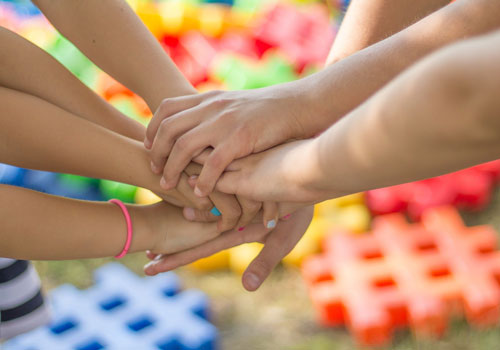Adolescents go through certain developmental stages where they need to develop their identity, both as individuals and as social beings. It isn’t something that happens all at once and involves:
- Testing out their relationship skills.
- Finding how they fit into various social groups.
- Developing a sense of self.
While they are developing social skills and becoming more empathetic, they are also easily hurt by criticism. Along the way, thinking for adolescents becomes more logical and they clarify their values and sense of morality. They also begin to separate from their parents and gravitate toward friends and peers as they get better at making their own decisions.
To thrive and stay resilient, students need to develop a sense of competence and confidence in their ability to learn new skills and succeed.
For adults working with young people, the question is how to support adolescents to thrive and become resilient, and incorporate both as skills that can be supported in everyday interactions.

Fun and leisure
Fun, recreation and meaningful leisure contribute greatlyto psychological wellbeing in adolescents and adults. Fun and relaxation serve a protective function during adolescence, promoting positive development by offering outlets for freedom of expression, choice, exploration, adventure and prosocial relationship building.
Intimate relationships
Erik Erikson (1958; 1963) identified a primary psychosocial task of the late adolescent into young adult stage as the ability to form close, loving relationships. High-quality relationships with family and friends in adolescence set the stage for high-quality and healthy relationships in adulthood. Young children learn through play, and we never really outgrow that.
They are essential during adolescence because they allow young people to try new ways of expressing themselves, interacting with others, and establishing relationships. The more stable and loving relationships adolescents have with family and friends, the more likely they will have long-lasting, healthy relationships as adults.
Safe space
We can also enhance wellbeing and resilience in our conversations with young adults by motivating them to attend to improving self-efficacy, self-determination, self-regulation, and self-development (life skills).
When students bond to positive structural supports and social supports like education and their workplace, it creates a safe space for them to grow and flourish.

Independent learning
Encourage students to be independent learnersand to consider positive actions like therapy, physical exercise, healthy eating, enough sleep, relaxation, etc. This will help develop capacity and strategy, healthy boundaries, emotional and social skills, time management, and prioritise emotion and problem-focused coping.
The next time you wonder why adolescents don’t always think things through as carefully as older people do, remember:
- Puberty causes hormones to surge, intensifying moods and emotional reactivity
- Frontal lobes, responsible for reasoned judgments, impulse control, and long-term planning, are not fully mature until about 25 years of age
- Risk-taking, impulsivity and emotional reactivity are natural in the adolescent stage
And lastly, a question to ponder over – Do you consider yourself to be resilient?

